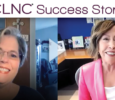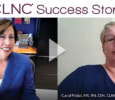Screening medical-related cases is one of the most important legal nurse consulting services you will provide as a Certified Legal Nurse Consultant. Not only is it one of my favorite CLNC® services, but it is the first CLNC service you usually provide for new attorney-clients. Do it well and the attorneys keep coming back for more. Here are 15 screening best practices to keep your attorney-clients coming.
- Give the attorney an objective, candid and honest opinion without regard for what you think the attorney wants to hear. Put aside interests in personal gain (e.g., more billable hours) and focus only on what is ultimately best for the attorney, the client and the case.
- Discuss the issues and theme of the case with the attorney-client and ascertain the date of the incident (when known) to help you focus quickly on the important events. If the case has been filed, request a copy of the complaint or petition. You will screen many cases in which the attorney knows little about the facts and has formed no opinion. If the attorney does have an opinion and you believe he is focusing on the wrong issues or your opinion is different, be sure to communicate your reasoning right away.
- If you do not have time to do the screening as soon as you receive the case, at least read the cover letter and scan the medical records. This helps you to establish deadlines, determine the basic issues of the case and assure you have all the necessary records. If relevant records are missing, inform your attorney-client immediately.
- Scan all relevant medical records and, where appropriate, note important observations and opinions. Avoid excessive writing at the screening stage, especially if you haven’t yet identified the essential issues and themes of the case. Your goal at the screening stage is to be efficient, and until you’ve reviewed all relevant records and identified key issues, it is very easy to go down unnecessary rabbit trails.
- Use the screening form to track all possible defendants, types of experts needed, additional documents needed and recommended research. When you give your screening opinion to the attorney, you can incorporate some of these into recommendations for the next indicated steps.
- Screening a case is similar to reading a mystery novel. You may even be surprised by the outcome because the focus may shift from something obvious, like a patient fall, to a less obvious issue, such as medication administration or safety policies and procedures. As new and more relevant issues arise, determine their significance and how they impact the essence of the case.
- Do not overlook the obvious by overanalyzing the records. Likewise, do not assume that the issues will automatically jump out at you. If you become overwhelmed by the task at hand or the volume of medical records, walk away for a while (or a day or two), then come back fresh and start again.
- Do not assume the case has no merit simply because a physician reviewed the records and found no merit. Physicians tend to limit their reviews to physician records and in so doing, they often miss vital information. For example, many MD experts do not review the nursing records and often it’s the nursing notes that shed the most light on what really happened to the patient. Always review the records completely and look for discrepancies in documentation by different providers.
- If you were hired by the plaintiff attorney, look at the case from the defendant’s viewpoint. What are the defenses or rationales in this case? If you were hired by the defense attorney, look at the case from the plaintiff’s viewpoint. What went wrong, if anything? Could anything have been done differently? Were any standards of care or practice guidelines breached?
- Don’t organize the medical records before you screen and you will save valuable time in the initial review process. If organizing the records is necessary before screening, do not organize them for comprehensive review and analysis, but organize only with the objective of making screening easier.
- Do not do a formal report during the screening stage – just complete the screening form to facilitate communicating your opinion clearly and concisely. More comprehensive reports are only indicated once you have communicated your screening opinion and both you and the attorney agree that a comprehensive review and analysis of the medical records is indicated.
- Access relevant healthcare references as needed while screening the case, but don’t overdo it at this stage. Unless you need some piece of information before you can move on, make a list of topics to search on the Internet and do all your searching at once. This will keep you focused as you read through the record. Narrow your searches to match the issues in your particular case (e.g., octogenarian, female, femur fracture, mortality). Be sure to research any articles and publications authored by all the relevant players in the case.
- Consider subcontracting the screening if the issues are outside your area of expertise. Make the decision to subcontract quickly and then act on it. Don’t wait until you need a CLNC subcontractor to try to find one. Develop a pool of CLNC subcontractors who are ready to respond to your needs. All successful CLNC consultants know what they don’t know and wisely tap into the expertise of their CLNC peers.
- Keep a calendar of the year in question close by. Look for weekends and holidays when short staffing is common.
- Pay particular attention when operative notes, admission history and physicals, discharge summaries and autopsy reports are dictated and transcribed. If an unusually long period of time elapsed between the event and the transcription, note that fact for future consideration.
Use these 15 best practices to make screening medical-related cases one of your most popular and satisfying CLNC services. Keep your attorney-clients coming back for more.
Success Is Yours,
P.S. Comment and share how you use these best practices for screening cases or to describe your own successful best practices.








